Face mask on or off? Students find social factors more important than the rules
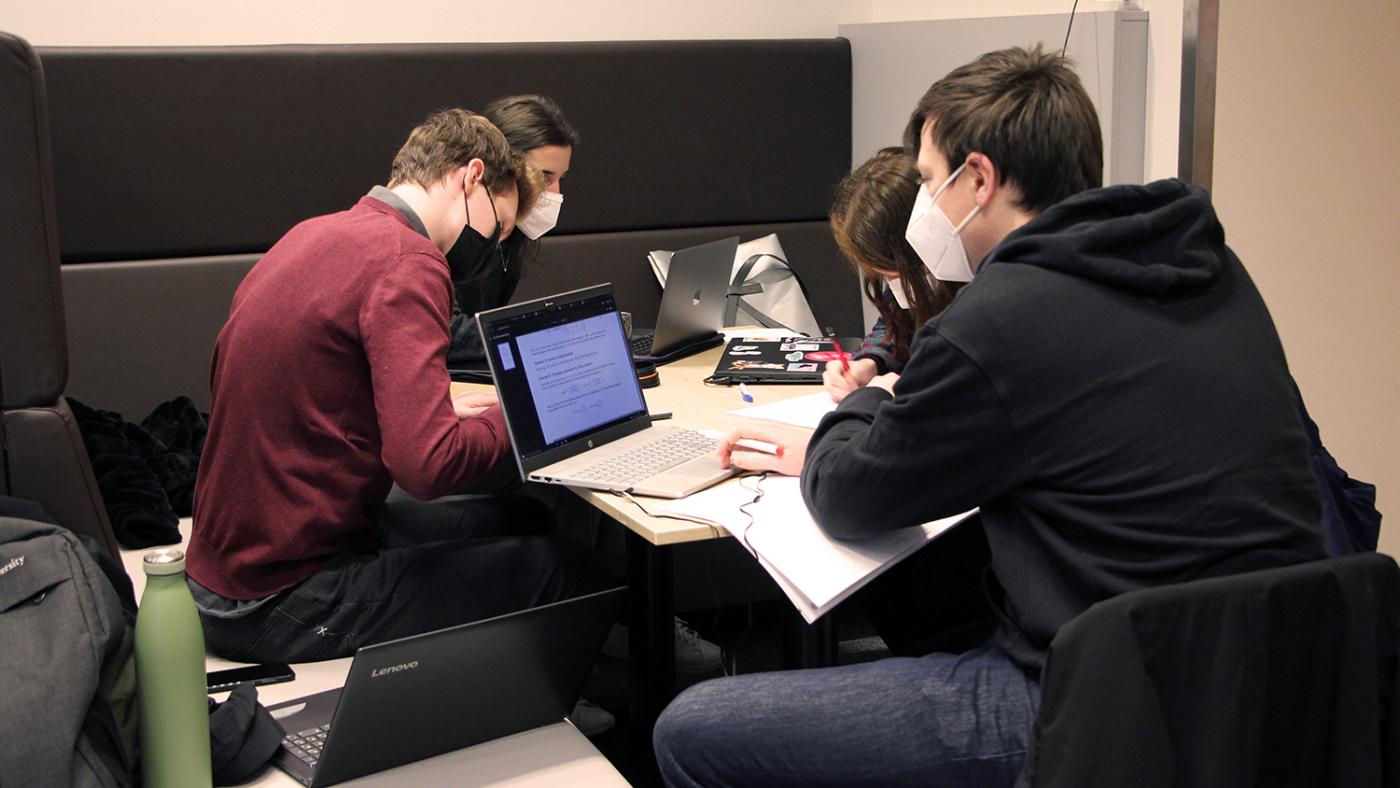
Now that the lockdown for higher education institutions is over, queues can once again be seen behind the food trucks in the Utrecht Science Park. Students and teachers walk around the campus, and the kanteens are packed again.
Even so, things haven't gone back to normal yet. In the Koningsberger building, most lecture halls are empty the whole day. The faculties don't have a complete overview of how many lectures are going to take place on campus. The facility staff that walks around the buildings every day estimates that the occupancy rate is lower than 10 percent. Last week, the university showed that it would be hard to bring all its educational activities back to normal in the wink of an eye.
That's why classes are still taking place online for now, unless stated otherwise. In most cases, the initiative to bring the class back to the campus comes from the lecturers themselves. If a teacher wants to have their class on location, they have to reserve a hall with the scheduling department and then notify the students. However, even if they do that, it's not guaranteed that the lecture is going to happen face to face, as coronavirus rules may change and people may be forced to quarantine.
Face mask rules are being interpreted subjectively
In the Ruppert and Koningsberger buildings, most students seem glad to be back. They work together in the study spaces or the kanteens, chatting and laughing. But one cannot help but notice that most of them are not wearing a face mask, even though the university has explicity stated that face masks must be used as frequently as possible in order to prevent the amount of infections from rising. Teachers are expected to make sure that all students keep their mask on as much as possible during class. There are a few exceptions to this rule, however, such as when the face mask is really uncomfortable or the person is eating, which leaves room for subjective interpretation.
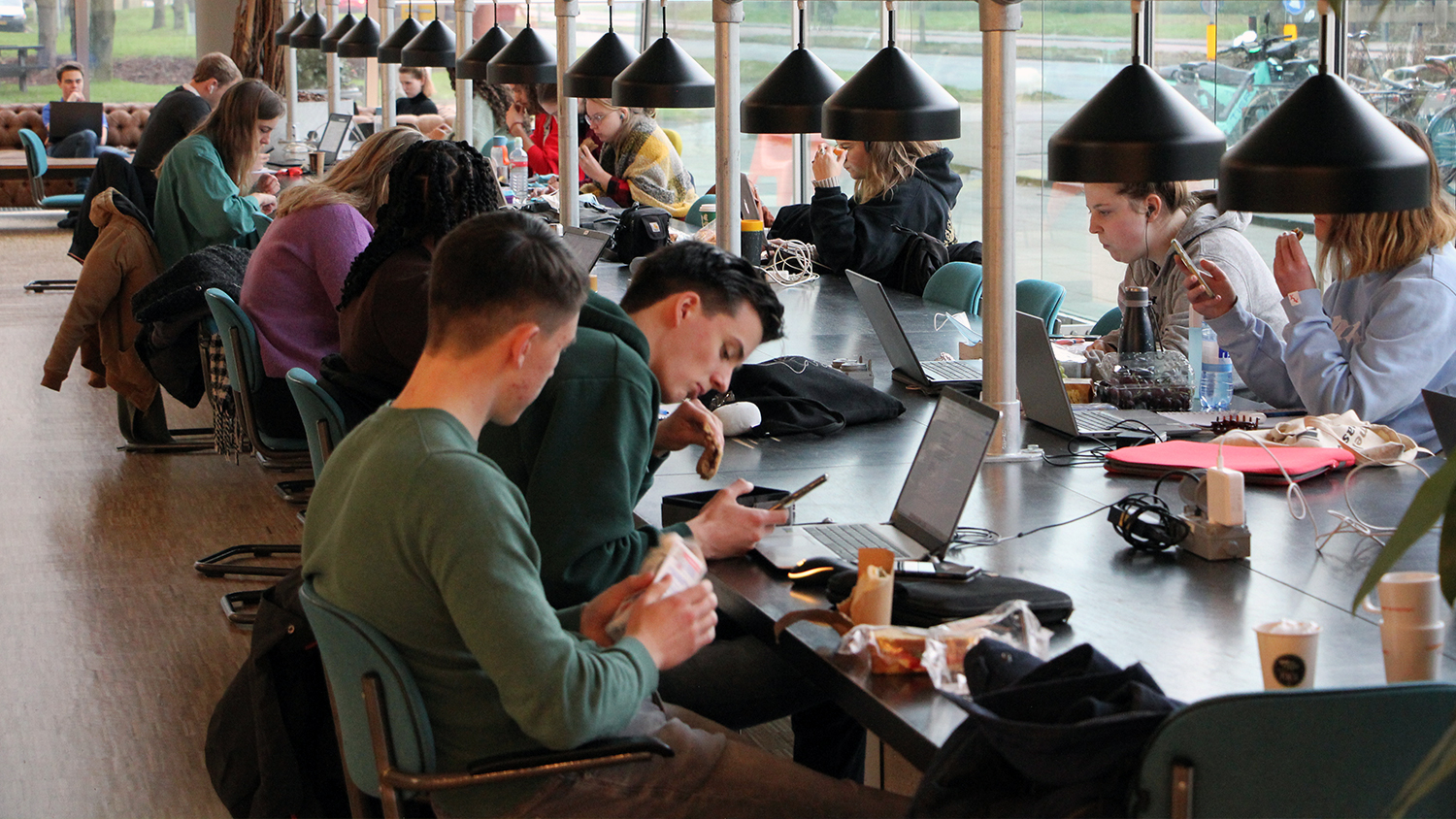
Outside the classroom, students are sure making use of that subjectivity. At 2:00 pm, all study cabins on the first floor of the Koningsberger building are occupied by groups of students working on assignments together. None of them is wearing a mask. Earth Sciences student Dieke, who is sitting with her peers in one of the cabins, explains why they took their masks off. "We all agreed to take them off. After all, we've all gotten our booster shots already". Asked whether they would have kept it on if someone in the group had asked them to, the answer is yes. "In that case, yes. But then I would not sit with them for hours each day". Many other students seems to agree with her. If a student or teacher asks them to, they keep the mask on. Otherwise, off it goes.
This attitude means an additional weight on lecturers' shoulders, who are now supposed to not only prepare their classes, but also schedule them and ensure that students abide to the rules. Therefore, the strictness of the face mask mandate actually depends on the teacher. As a result, the Ruppert building makes for a rather astonishing sight: either the entire lecture hall is wearing a mask, or practically all students have their faces uncovered.
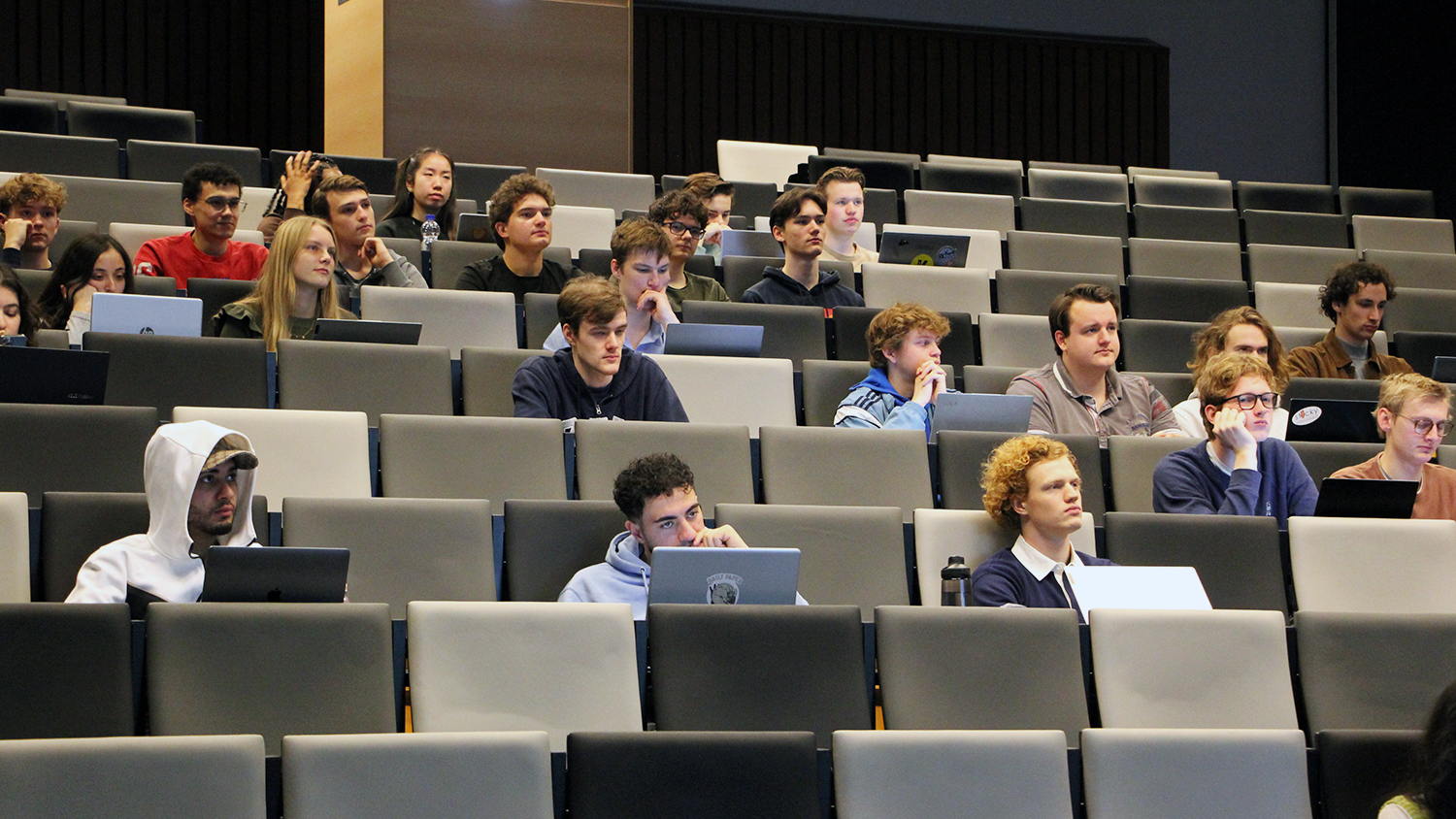
The social factor
In most lecture halls, the new face mask mandate is being followed strictly. In a small classroom filled with Geology students, everybody is wearing one. Student Matthijs tells DUB that he's glad the teacher made an effort to organise a class on campus, so he doesn't mind having to wear a mask. He must admit, though, that he didn't take a surgical mask at the reception desk, as the university strongly advised everyone to do. He doesn't change his mask every day, either. He says he would only do that if the university was more active in offering masks at the entrance.
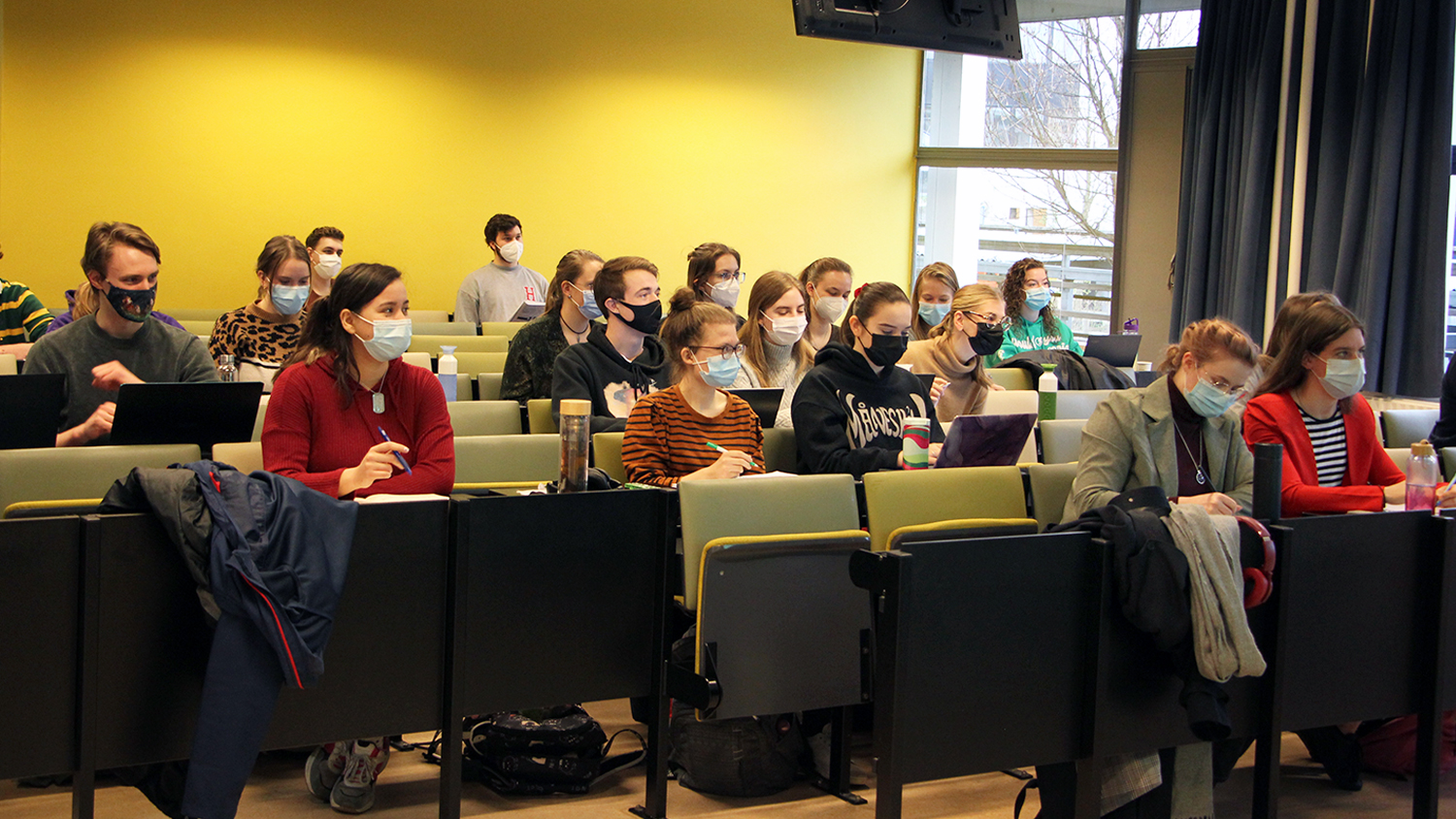
It looks like Biology and Medicine students are expected to follow the rules more than others. In a Biology class, everyone has a mask on. One of the students, Chariya, always makes sure to stay on top of the policies. "Perhaps because we're learning about viruses right now", she says, giggling. Another student, who is pursuing a degree in Biomedical Sciences, confirms that her faculty is also very strict regarding the mask mandate. At the Faculty of Veterinary Medicine, students are even expected to change their masks every two hours during practical sessions that require them to move a lot. Still, Chariya has her doubts whether Biology students are better at following the rules than others. "Law students have a conscience just as much as we do".
Iris, a Master's student of Science and Business Management, says she is willing to make the "sacrifice" of wearing a mask the whole day, as long as universities may remain open. But she just came out of a class where students were not keeping 1.5 metres (6 feet) away from each other and almost nobody had a mask on. Commenting on that, she blushes: "The teacher told us in the beginning of the class that we were strongly advised to wear a mask, but it didn't feel like an obligation. I think only four out of thirty students kept their mask on the entire time". She would have put hers on if the rest of the class did the same.
In the next lecture hall, no one is wearing a face mask either. Two students tell DUB that they're not managing to keep up to date with the rules, so they only wear a face mask if the people around them ask them to. That's the attitude most students seem to have. If everyone is wearing a mask, they're less inclined to take theirs off, and vice-versa. This phenomenon is even more prevalent in social situations, such as working in groups or sharing a study cabin.
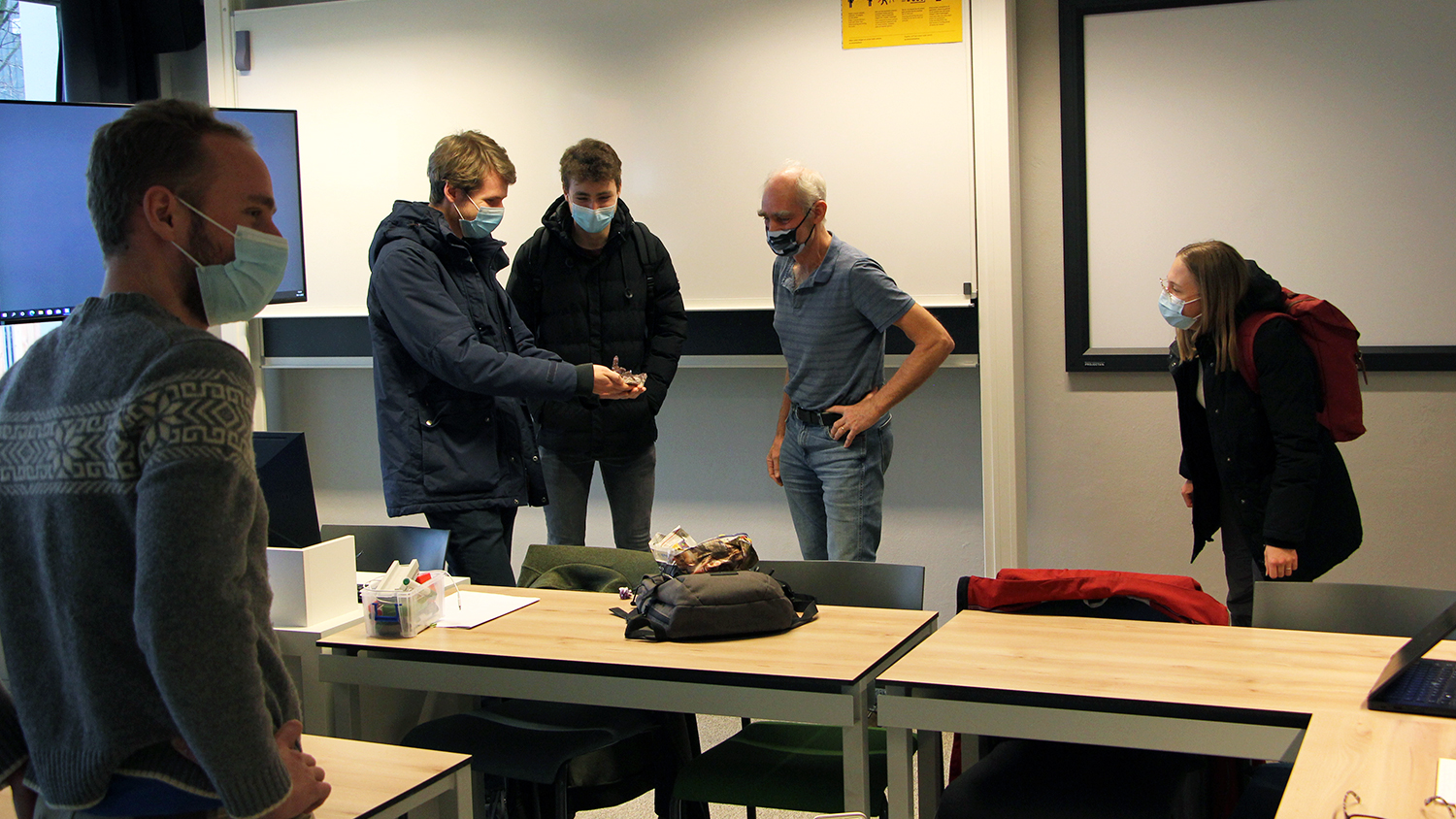
Maarten Post, spokesperson for the university, is not amused by the students' subjective interpretation of the rules. He laments that the enforcement of the rules now lies in the hands of the teachers, who are already dealing with a heavy workload in this chaotic transition phase. "Students should use their common sense. If a lecturer stresses that face masks should be worn, than do that. We all know how miserable we would be if the universities were forced to close their doors again".